Speculators are betting against a host of British companies in the wake of Rachel Reeves’s anti-business Budget.
So-called short-sellers – who profit when share prices fall – are targeting household names from Marks & Spencer and Sainsbury’s to Domino’s Pizza and Burberry.
Such attacks can put downward pressure on share prices – hitting the value of the pensions, ISAs and other investments held by millions of savers.
The scale of the short-selling is laid bare in a report by online broker AJ Bell as businesses continue to reel from the Chancellor’s debt-fuelled spending spree and £40bn of tax hikes.
So is this sounding an alarm for private investors to take action and sell shares in the retail sector?
High Street firms including shops and restaurants have been hit particularly hard by the increase in national insurance contributions. This is on top of an inflation-busting rise in the minimum wage and Labour’s new package of workers’ rights.
Industry experts have warned the package will lead to store closures, job losses and higher prices.
All of this is laced with warnings that Britain is facing a new era of ‘stagflation’ – or weak economic growth and rising prices.
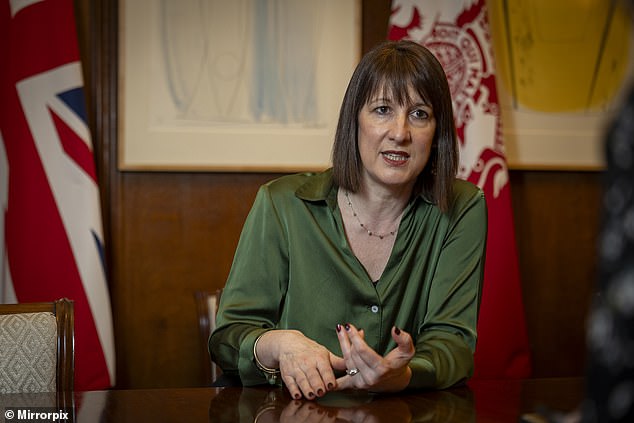
Professional stock market speculators are looking to cash in on the misery, which is why some of our best-loved stores have become prime targets.
‘Short-sellers are targeting UK stocks at risk from Rachel Reeves’s Budget decisions,’ said the AJ Bell report, noting that ‘consumer-facing companies’ are in the firing line.
Warning of ‘a gloomy outlook for the economy’, the report said the Budget has ‘clouded the outlook for consumer spending’.
It came just a day after the Bank of England halved its forecasts for economic growth and warned of a fresh squeeze on living standards – fuelling stagflation fears.
Short-sellers take bets against companies and profit if the share price falls.
By contrast, traditional investors buy shares in the hope that they will rise.
Among the companies under attack are B&Q and Screwfix owner Kingfisher, online supermarket Ocado, housebuilder Vistry and pet chain Pets at Home.
‘These are big names which rely on the general public to keep their tills ringing,’ said Dan Coatsworth, investment analyst at AJ Bell.
‘If times get harder for such big brands, it won’t simply be bad for the share price, it will also represent a big setback for the UK’s economic growth story.’
He warned the outlook for the UK economy ‘is getting worse by the day’ with business and household confidence collapsing even before a series of tax hikes in April.
The dismal state of the economy was highlighted on Thursday when the Bank of England slashed its growth forecast for this year from 1.5pc to just 0.75pc and warned inflation will hit 3.7pc having been 1.7pc just five months ago.
‘Put these things together in a pot and it’s a recipe for disaster if you’re a retailer or leisure operator dependent on consumer spending,’ said Coatsworth.
‘It’s no wonder that short sellers are sharpening their knives and hoping to make a pretty penny.’
Tory business spokesman Andrew Griffith said: ‘The wreckage from Rachel Reeves’s disastrous Budget choices still ricochets around the economy, damaging everything it touches.
‘Through its impact on the High Street and depressing the share prices of some of the best-known British businesses, it is now hitting the retirement savings and pensions of millions.
‘If Labour had an ounce of comment sense, they would change course now.’
Below are some of the shares that are being targeted by speculators.
But should you be betting against these companies as well – or hold your nerve and hope to ride out the storm?
KINGFISHER
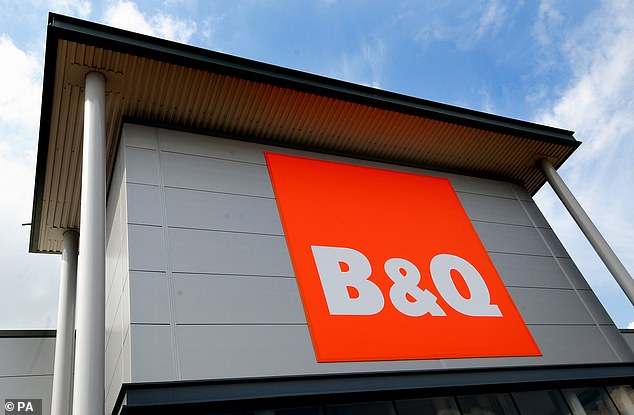
The B&Q owner is suffering from what AJ Bell’s Coatsworth calls ‘a post-Covid hangover’ as workers go back to the office rather than do up their homes.
A recent profit warning sent the shares to an eight-month low. They have recovered a bit but short-sellers have been ramping up their bets against Kingfisher into this year.
Short-sellers now account for 6.9pc of the shares, making Kingfisher the second most shorted on the UK stock market.
That’s despite ‘remarkably upbeat’ recent trading statements from DIY rival Wickes and specialist retailer Topps Tiles, Coatsworth notes.
City analysts are split, however, with three rating the stock a ‘buy’ and three telling clients to ‘sell’. A further eight say ‘hold’ if you currently own the shares.
DOMINO’S PIZZA
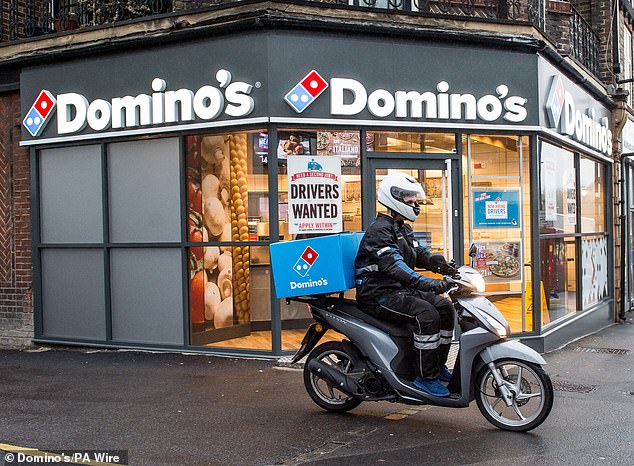
The number of bets against the Domino’s franchise owner recently hit their highest level since 2021, with six City institutions wagering that shares in the fast-food chain is going to fall.
‘The franchisees are facing higher wage costs associated with the Budget,’ says AJ Bell’s Coatsworth.
‘Consumers’ appetite and ability to afford a £10 to £20 pizza is also under question if the economy remains sluggish.’
Labour’s extra employment costs are not Domino’s problem because it takes a fee from franchisees based on revenue, not profit.
That’s why there’s been ‘a big push’ on value deals as cash-strapped customers watch the pennies, Coatsworth adds.
Opting for a cheap supermarket alternative may be a tempting option for them if money tight.
Analysts are more positive on the shares – which are up 8pc so far this year – with eight saying ‘buy’ including four rating the stock a ‘strong buy’. Just one analyst says ‘sell’.
MARKS & SPENCER
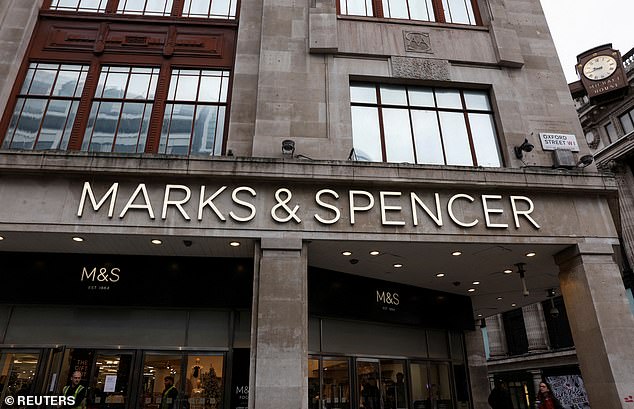
Shares in the High Street stalwart are down 12pc so far this year but are still nearly three-times higher than they were at the start of 2023.
As gloom descends on the retail sector, however, one of London’s most successful hedge funds thinks they have further to fall. It has increased its bets against M&S in recent weeks.
M&S is one of several consumer-facing firms being targeted by Marshall Wace, which is run by Sir Paul Marshall, owner of the GB News channel.
City analysts remain positive. Of the 17 who cover M&S, 14 rate it as a buy, and three a hold with no sellers.
Clive Black at Shore Capital, which is M&S’s own broker, notes that ‘strong momentum’ in its food unit ‘seems to have carried into 2025’.
He also welcomes the new boss of the clothing division, John Lyttle, and plans to expand the beauty offering.
SAINSBURY’S
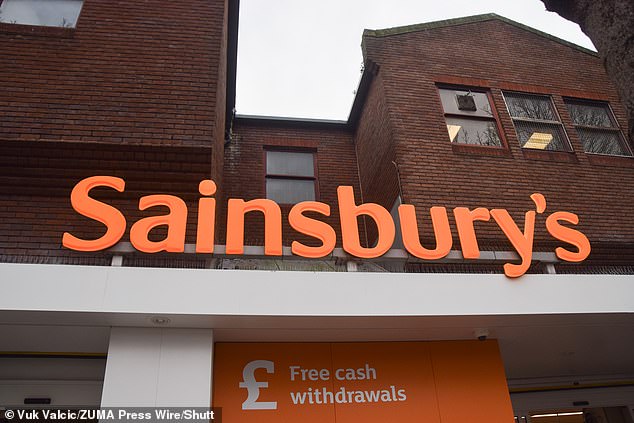
Britain’s second-largest supermarket has had a good cost of living crisis so far.
It has increased its market share to almost 16pc by matching German discounters Aldi and Lidl on the price of some essential items.
A successful relaunch of its Nectar loyalty card also helped.
But five City institutions, including Marshall Wace and Blackrock, the world’s biggest asset manager, are now betting against the grocer, whose shares have been treading water over the last year.
They think the grocery chain will not be immune from consumers’ woes.
Retail analysts are more positive with eight of them recommending the shares as a buy against two who say sell.
VISTRY

It’s not just retailers who are in the short-sellers’ sights.
Housebuilder Vistry has had a torrid time, having warned of lower profits three times in as many months.
Shares in the owner of Bovis Homes languish near a two-year low. That hasn’t stopped Wall Street billionaire investor Ken Griffin shorting them, suggesting his Citadel hedge fund thinks they will go even lower.
All told, some 4.4 percent of Vistry’s shares have been shorted, making one of the most bet-against companies on the stock market.
This week’s interest rate cut should make mortgages cheaper but analysts say higher employment costs are likely to further dent consumer confidence.
‘Many people looking to move home might think they’re better off sitting tight for now, particularly if they are worried about job security,’ says AJ Bell’s Coatsworth.
That is likely to be another negative for Vistry, and four analysts rate the stock a ‘sell’, though five say ‘buy’, highlighting how split the City is over the outlook.
PETS AT HOME
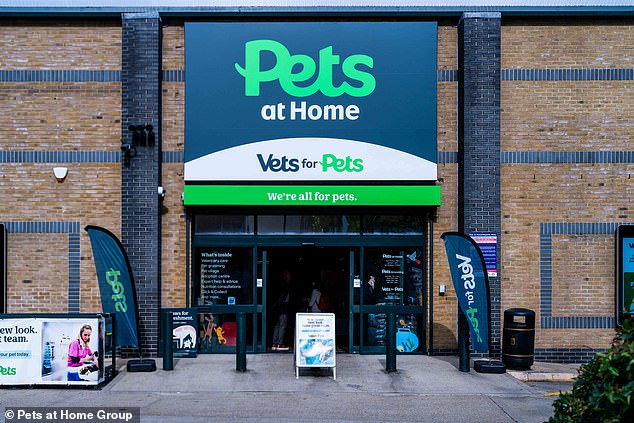
Pandemic lockdowns were a major boon for Pets at Homes as cooped-up customers sought company in the furry form of cats and dogs, boosting its retail and veterinary earnings – and the share price.
But like other Covid winners, Pets at Homes has seen demand ease amid a cost of living crisis, higher bills and a probe by regulators in the UK vet market.
Short-sellers have been ramping up bets against Pets, with 3.6 percent of the shares now in their hands.
Pets at Home may struggle in the tougher retail climate but seven out of nine City analysts who follow the stock still think it’s a buy at 225p.
OCADO
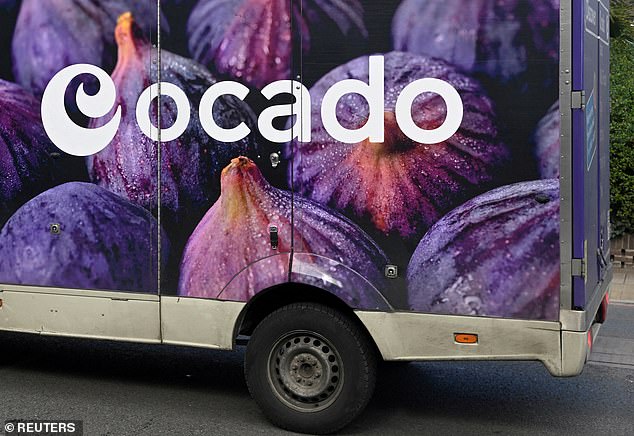
Ocado is a regular fixture in the short-sellers’ list as opinions remain divided over whether the online grocer will ever make a real profit.
The shares have lost almost three-quarters of their value since peaking during the pandemic as consumers went back to in-person shopping.
While its retail joint venture with M&S traded strongly in the run-up to Christmas, Ocado gave no indication of how its overall business, which includes running automated warehouses, performed.
Retail analyst Clive Black at Shore Capital said loss-making Ocado ‘must find a way to make a pre-tax profit’ which the company has promised to deliver within about five years.
But patience is wearing thin. Some 4.7pc of Ocado’s shares still belong to speculators who think they will fall further.
Recent history suggests they could well be right again. City analysts are split, however, with five saying ‘buy’, five saying ‘hold’ and five saying ‘sell’.
BURBERRY
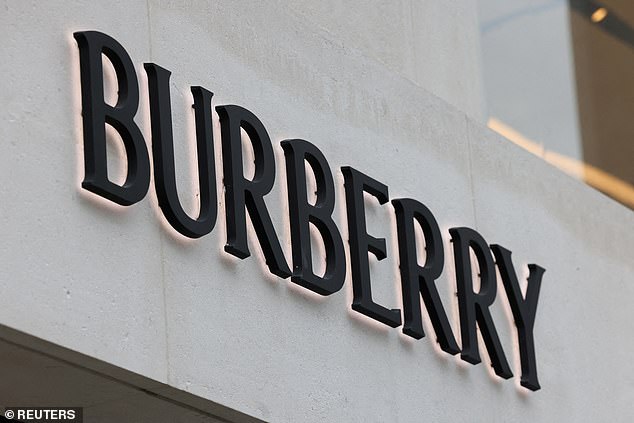
Shares in the luxury fashion label have been buoyed by recent talk it could be a takeover target.
But that hasn’t stopped short sellers taking significant positions, with 4.4pc of Burberry’s shares in their hands.
They are betting Burberry’s recent rally will fade as customers rein in spending on its handbags, shoes and designer clothes.
Doubts remain about the recovery plan of Burberry’s new management team but recent results were better than expected.
‘Burberry is back,’ said retail experts at Deutsche Bank.
Others seem to agree with four saying the shares are also a ‘buy’. But a further five say ‘sell’ despite signs a turnaround may at last be underway.


